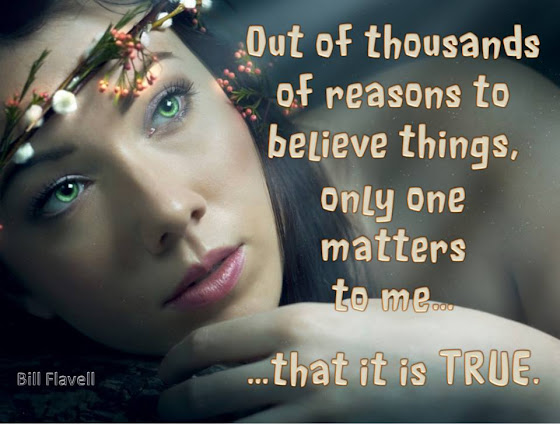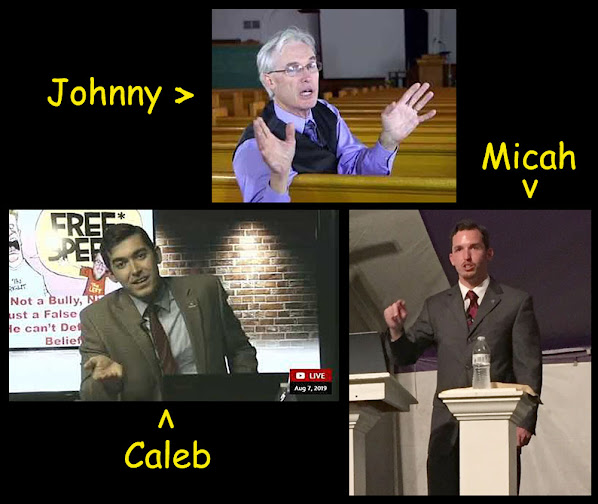How do you KNOW?
God, why is it so darn important to you that humans believe in you?
For instance, one of the core tenets of Christianity - the belief in the virgin birth of Jesus. No one actually possesses factual knowledge that Mary was impregnated without having sexual intercourse with a man, resulting in the birth of Jesus, and yet, Christians by the millions will offer their belief in the virgin birth claim AS IF they know that the claim is true.
(It's not true - the author of the gospel of Matthew screwed up)
One of my favorite pass-times is to explore old cemeteries, reading the inscriptions on the headstones. Often the epitaph will include the sentiment that the deceased was a person "of deep faith" as if "deep faith" was a beneficial character trait. Personally, I would much rather be known for my "deep knowledge". Knowledge takes commitment and work to attain, religious faith takes absolutely nothing - it simply requires a willingness to continue believing what is quite unbelievable.
Epistemology
Epistemology is the investigation of what distinguishes justified belief from mere opinion . . . or . . . The study of the nature of knowledge, justification, and the rationality of belief.
"Epistemology doesn't help us know much more than we would have known if we had never heard of it. But it does force us to admit that we don't know some of the things we thought we knew."
~ EPISTEMOLOGY for DUMMIES
Epistemology forces us to consider these questions:
1- What does it mean to say that we know something?
2- How do we know that we know?
3- How do we find a reliable pathway to truth?
4- Is faith a reliable pathway to truth?
5- Is reason a reliable pathway to truth?
Epistemology is the investigation of what distinguishes justified belief from mere opinion . . . or . . . The study of the nature of knowledge, justification, and the rationality of belief.
"Epistemology doesn't help us know much more than we would have known if we had never heard of it. But it does force us to admit that we don't know some of the things we thought we knew."
~ EPISTEMOLOGY for DUMMIES
Epistemology forces us to consider these questions:
1- What does it mean to say that we know something?
2- How do we know that we know?
3- How do we find a reliable pathway to truth?
4- Is faith a reliable pathway to truth?
5- Is reason a reliable pathway to truth?
Is faith a reliable pathway to truth?
Is faith a reliable pathway to truth?
Is faith a reliable pathway to truth?
That is a very important question, and the answer should become quite apparent if one is willing to honestly consider it.
Christian - pick any one of your core religious beliefs that you must maintain in order to be a Christian - for instance, the bodily resurrection of Jesus. You believe that this is a "truth" and the "pathway" that you followed to arrive at this belief is faith. So in the Christian mind faith IS a reliable pathway to truth.
However, when pressed the Christian should admit that there are billions of people from other religions who's beliefs (faith) are viewed by Christians as untrue or false - but - those people used faith as their pathway also. They cling to their religious beliefs because they have faith in their holy books or their religious leaders, just as Christians do.
So, if faith can lead a person to a "true belief" (let's say - Christianity), and faith can lead a person to a "false belief" (let's say - Islam), then one should be able to recognize that the answer to the question "Is faith a reliable pathway to truth?" is a firm NO.
Faith can and will lead a people to believe true claims and false claims.
Some relevant quotes:
What is faith? To me, it is nothing more than holding the opinion that an idea is true with a certainty that exceeds available evidence, and too often, ignores contrary evidence.
~unknown
"Believing is easier than thinking. Hence so many more believers than thinkers."
~Bruce Calvert
Truth doesn't depend on what you want it to be.
~Brian Larnder
The most useful piece of learning for the uses of life is to unlearn what is untrue.
~Antisthenes
My beliefs are driven by facts - not the other way around.
~unknown
What is faith? To me, it is nothing more than holding the opinion that an idea is true with a certainty that exceeds available evidence, and too often, ignores contrary evidence.
~unknown
"Believing is easier than thinking. Hence so many more believers than thinkers."
~Bruce Calvert
Truth doesn't depend on what you want it to be.
~Brian Larnder
The most useful piece of learning for the uses of life is to unlearn what is untrue.
~Antisthenes
. . . free thought means that you’re literally free to believe whatever makes sense to you, and you’re free to change your mind when it doesn’t make sense anymore. You’re neither damned nor saved according to anything you do or do not believe, because the goal is not to believe but to improve understanding. The only way to do that is to seek out the flaws in your current perspective and correct them. Faith offers no way to do that. So it’s best to abandon faith first.
~Aron Ra
A rational belief is one, where every attempt has been made to eliminate the influence of cognitive biases upon the act to believe, and one where belief-revision is practiced in the same manner upon acquisition of new evidence.
A faith-based belief is one, where little or no attempt has been made to eliminate the influence of cognitive biases, even to the extent of engaging in activities that use cognitive biases to aid in that belief formation.
~unknown
Perhaps religions greatest coop is that it has managed to drive such an efficient wedge between a person’s own senses and their beliefs.
~Theromin Trees
The evidentiary threshold people use to confirm their existing beliefs is far lower than that used to change them.
~unknown
~Aron Ra
A rational belief is one, where every attempt has been made to eliminate the influence of cognitive biases upon the act to believe, and one where belief-revision is practiced in the same manner upon acquisition of new evidence.
A faith-based belief is one, where little or no attempt has been made to eliminate the influence of cognitive biases, even to the extent of engaging in activities that use cognitive biases to aid in that belief formation.
~unknown
Perhaps religions greatest coop is that it has managed to drive such an efficient wedge between a person’s own senses and their beliefs.
~Theromin Trees
The evidentiary threshold people use to confirm their existing beliefs is far lower than that used to change them.
~unknown
My beliefs are driven by facts - not the other way around.
~unknown
bob
r.u.reasonable@gmail.com





Comments
Post a Comment